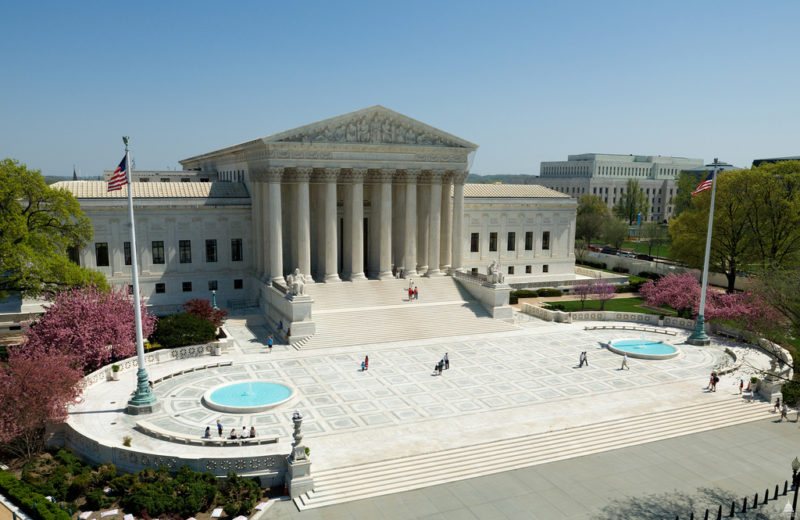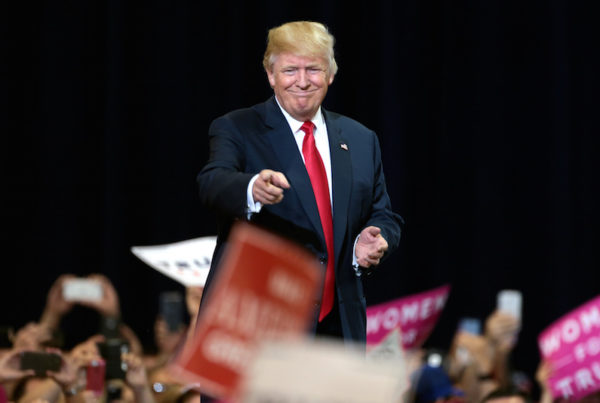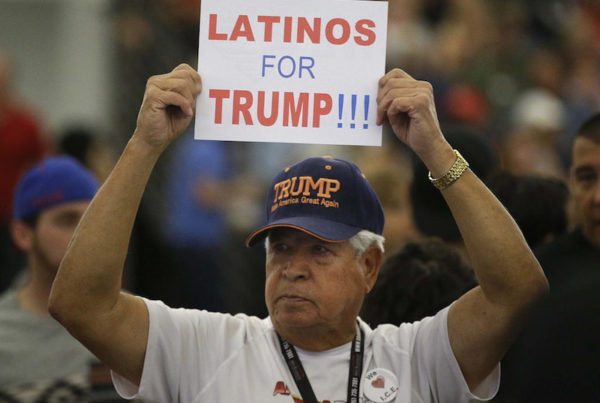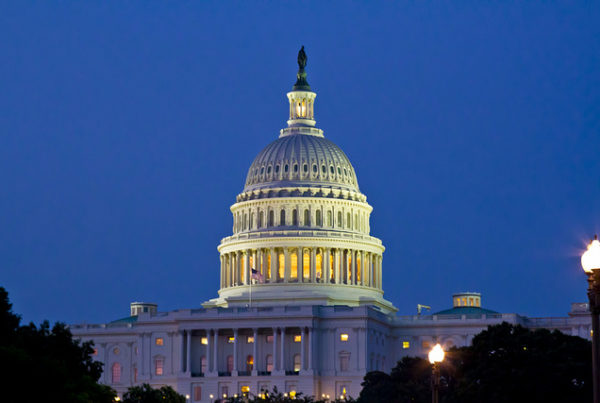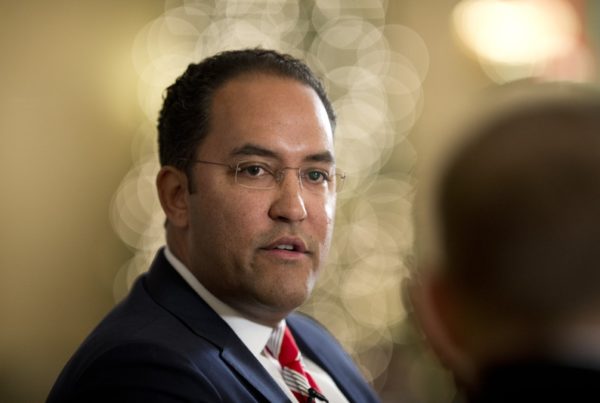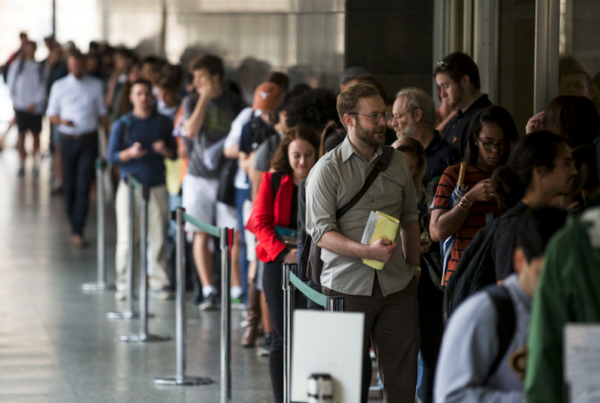This story originally aired on Nov. 11, 2016, and has been updated throughout.
Most parts of a president’s legacy are murky. It can be hard to identify an administration’s long-term effect on the economy or the environment, but the Supreme Court is a different story.
“Can you think of much of what Ronald Reagan did that has an impact today? Maybe yes, maybe no,” says Josh Blackman, professor at Houston College of Law. “But Anthony Kennedy? Major impact. Antonin Scalia, until recently? Major impact. Much that Bill Clinton did that’s relevant today? Not much. Ginsburg and Breyer? Major impact.”
In this election, in particular, the stakes of the Supreme Court have been high from the outset. There’s already one vacancy on the bench. And odds are good there will be more.
“It’s very possible that the new president may have more vacancies to fill as we have three justices on the court that are over right now the average retirement or resignation age of 78,” says Charles “Rocky” Rhodes with Houston College of Law.
If Trump wins a second term, it’s possible that he could fill four seats. But just filling Scalia’s seat will have major implications for cases important to Texas. That includes one that ended in a 4-4 tie this summer: United States v. Texas. It considers President Barack Obama’s 2014 executive action to defer deportation for certain undocumented immigrants. The tie leaves the lower court’s ruling in place, which set aside Obama’s order until there’s a permanent resolution.
“United States versus Texas might have come out differently with a different justice on the court,” Rhodes says. “That case could go back up to the United States Supreme Court, and one justice there could make a huge difference with respect to the ultimate resolution of that case.”
With a Trump appointee, that resolution would likely favor opponents of Obama’s executive action on deferred deportations. But it’s not just immigration issues that would be impacted. Other looming issues such as gun rights, campaign finance or the death penalty, would likely earn a conservative ruling. That’s also true for LGBT rights cases like Gloucester County School Board v. G.G. The case just landed on the court’s docket. It considers whether transgender students can use the bathroom that matches their gender identity. That’s disallowed under a “bathroom bill” that passed in North Carolina in 2016.
Texas lawmakers are considering a similar measure this legislative session. It has the backing of Lt. Gov. Dan Patrick. And Rhodes predicts it won’t be the last time Texas’ socially conservative political leadership clashes with LGBT rights.
“We certainly are going to see a lot of cases that are going to be rising – trying to draw that line between where the rights of individuals to express their opposition to same-sex marriage, versus the rights of LGBT individuals,” Rhodes says.
A Trump appointee may also delay action on an issue that many legal scholars view as unavoidable, says Scot Powe from the University of Texas at Austin law school.
“There’s going to come a reckoning on the death penalty in some point in time,” Powe says. “So few states are executing people, and even Texas has slowed significantly the number of executions, that at some point in time unless things change, the court is going to say the death penalty is cruel and unusual punishment. I think that decision is almost inevitable.”
“There’s been this movement on the left, Justices Ginsburg and Breyer have signed on to say while the death penalty may not be unconstitutional by itself, we don’t have the means to implement it that is Constitutional,” Josh Blackman says.
That distinction is especially relevant to Texas. Attorney General Ken Paxton sued the Food and Drug Administration in early January 2017 for detaining a shipment of drugs the state plans to use in executions. The agency hadn’t approved the drugs for human injections. Paxton argued the state should receive an exception to use the drug because they’re for a law enforcement purpose. But overall, lawsuits filed by Texas against a Trump-led federal government may slow significantly from the previous eight years.
Then-Attorney General Greg Abbott and his successor, Paxton, sued the Obama administration dozens of times. During the Trump administration, state attorneys may find themselves in front of the Supreme Court far less. Patrick said as much in a statement on Election Night which read, in part, “for the first time since 2008, we won’t have a White House that we have to constantly sue to protect the rights of Texans.”
“You didn’t see Governor Abbott when he was attorney general, for instance, file as many lawsuits when we had President George W. Bush in office,” Rhodes says. “Because his executive orders and executive actions and the administrative decisions that were made were typically – not always, but typically – more in line with the same political beliefs as our highest Texas elected officials.”
So the question now becomes whom Trump will appoint. When Obama nominated Judge Merrick Garland to Scalia’s seat, Senate Republicans gambled. They stalled Garland’s confirmation, waiting to see the outcome of the election. And it paid off. Now, looking through the list of names Trump will consider for Scalia’s seat, there’s one in particular Texans would watch. That would be Don Willett – a current Texas Supreme Court Justice.


